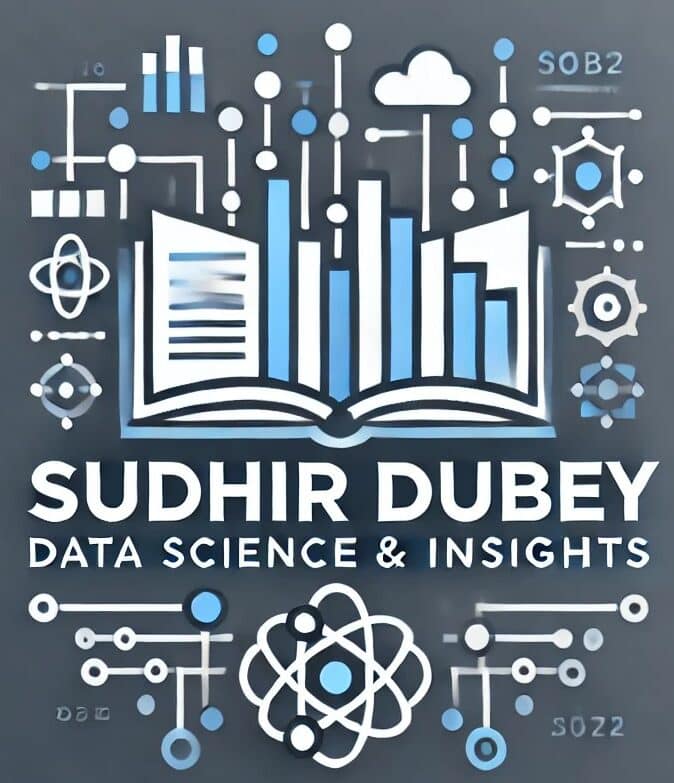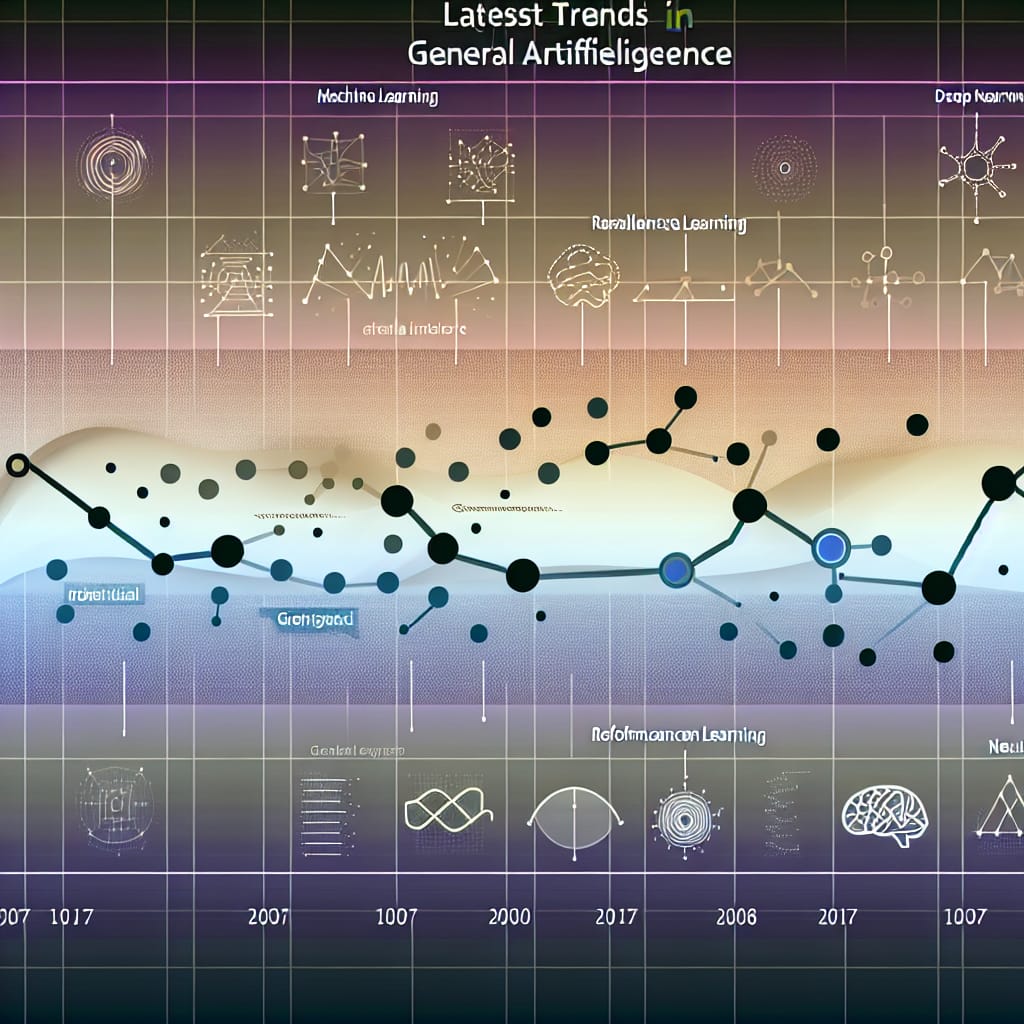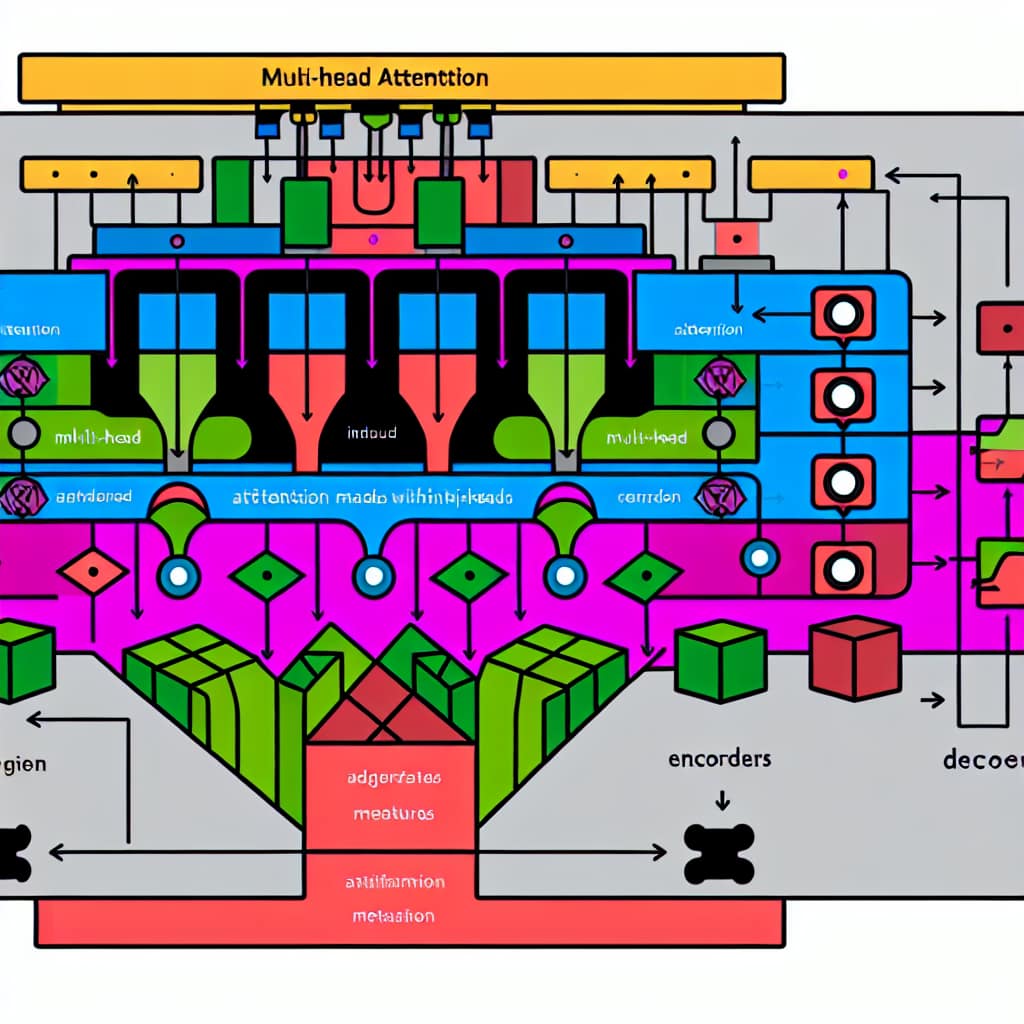GenAI Trends: 7 Advanced Insights Shaping the Future in 2025
In recent years, Generative AI (GenAI) has transformed industries by providing innovative solutions that automate tasks, enhance creativity, and improve efficiency. As we approach 2025, understanding the emerging GenAI trends becomes crucial for professionals in AI and Data Science. This article delves into the current landscape, exploring advanced GenAI applications, frameworks, and trends that hold promise for the future. Whether you’re an AI professional, enthusiast, or learner, this comprehensive analysis offers valuable insights into how GenAI is reshaping the technological landscape. Stay ahead with our in-depth exploration of the trends that will define the future.
Table of Contents
Revolutionizing Industries
GenAI is at the forefront of industry transformation, redefining tasks through advanced automation and predictive capabilities. In healthcare, for example, AI-driven tools are being used to analyze medical images with unprecedented accuracy, reducing diagnostic errors. In finance, GenAI predicts market trends by processing vast data sets, enabling quicker decision-making. These innovations are not only increasing efficiency but also opening new avenues for industry growth and employment.
Use Cases in Healthcare
AI algorithms are enhancing the diagnostic process by evaluating medical scans more accurately than human counterparts. Hospitals are leveraging GenAI to create predictive models that anticipate patient needs, optimize resource allocation, and streamline workflows.
Impact on Finance
Financial institutions are applying GenAI to navigate dynamic market conditions and detect fraudulent activities. AI models analyze behavioral patterns and flag inconsistencies in real-time, offering a significant advantage in risk management. Explore more AI applications.
Personalized AI Experiences
Personalization is a significant trend in GenAI, aiming to refine user interactions across platforms. By harnessing AI’s predictive capabilities, companies are crafting more personalized, engaging experiences. For instance, retailers use AI to provide personalized shopping recommendations, thereby enhancing customer satisfaction and loyalty.
AI in Retail
Retailers like Amazon are utilizing AI algorithms to analyze shopping patterns, allowing them to tailor offerings and create targeted promotions. This personalized approach significantly enhances the customer journey, driving engagement and sales.
Customer Engagement
In the era of digital marketing, GenAI tools are pivotal in creating content that resonates with audiences. By analyzing consumer behavior, these tools help in crafting messages that are more likely to engage users, ultimately boosting brand interaction.
Sophisticated Content Creation
GenAI is pioneering new frontiers in content generation, from text and images to music and video. AI models like GPT-4 are capable of producing human-like text, which is invaluable for creating everything from promotional materials to complex research papers. Furthermore, AI-driven tools are being employed in media and entertainment to generate creative assets, reducing production costs and time.
Text Generation
Natural language processing models are powering the next generation of content strategies. Tools like OpenAI’s GPT-4 are transforming the way businesses communicate, enabling the generation of both technical reports and creative content with minimal human intervention.
Creative Industries
In filmmaking and music production, GenAI aids in scriptwriting and sound engineering, offering new creative possibilities. The democratization of content creation is now more achievable, breaking barriers for independent creators. Read more on our GenAI blogs.
Ethical Considerations
As GenAI becomes more integrated into daily operations, ethical considerations are paramount. Issues such as data privacy, bias in algorithms, and the accountability of AI decisions need addressing. Stakeholders are actively seeking solutions to ensure AI advancements benefit society at large without infringing on rights or fairness.
Privacy Concerns
AI’s need for vast amounts of data raises privacy concerns, necessitating stringent data protection measures. Organizations must prioritize ethical data collection, ensuring user consent and transparency.
Bias in AI
Algorithmic biases pose challenges in achieving equitable AI solutions. Developers are focusing on creating diverse datasets and implementing bias-mitigation techniques to enhance AI fairness.
Next-Gen AI Frameworks
Advancements in AI frameworks and infrastructure are driving the GenAI revolution. Next-gen frameworks like TensorFlow and PyTorch are continuously evolving, allowing for more robust and efficient AI model development. These tools are crucial for researchers and enterprises aiming to develop scalable AI solutions.
TensorFlow
TensorFlow remains a favorite among developers for its flexibility and comprehensive ecosystem, enabling the development of various AI solutions from basic applications to complex deployments.
PyTorch
PyTorch is gaining momentum due to its dynamic computation graph and simplicity, making it a preferred choice for prototype development and academic research. Learn more through our Data Science content.
Real-World Case Studies
Exploring real-world examples provides insight into GenAI’s potential impact. Companies in various sectors are already leveraging GenAI to gain a competitive edge.
Google Healthcare
Google uses AI to predict patient outcomes more accurately, providing timely interventions that save lives. This approach showcases AI’s potential in augmenting healthcare delivery.
Microsoft Azure
Microsoft’s AI-powered Azure cloud offers scalable solutions for businesses, aiding in everything from data analysis to machine learning deployment. These innovations demonstrate AI’s role in enhancing cloud computing capabilities.
Frequently Asked Questions
- What is the future of GenAI?
- How is GenAI impacting everyday life?
- Is GenAI ethical?
- What are the main frameworks for developing GenAI?
GenAI’s future involves even greater integration across industries, improving efficiency and personalizing experiences.
GenAI affects everyday life by automating routine tasks, enhancing personalized experiences, and driving technological innovation.
While GenAI offers numerous benefits, ethical challenges must be addressed to ensure responsible deployment, such as biases and data privacy.
TensorsFlow and PyTorch are leading frameworks, offering powerful tools for AI model development and deployment.
Conclusion
GenAI is a transformative force across industries, reshaping how tasks are automated, content is generated, and decisions are made. As we move towards 2025, understanding these trends allows professionals and organizations to harness GenAI’s full potential. By addressing ethical challenges and leveraging advanced frameworks, AI practitioners can lead the charge in innovation. To stay informed on the latest GenAI developments, subscribe to our updates or explore our dedicated AI, GenAI, and Data Science resources.



